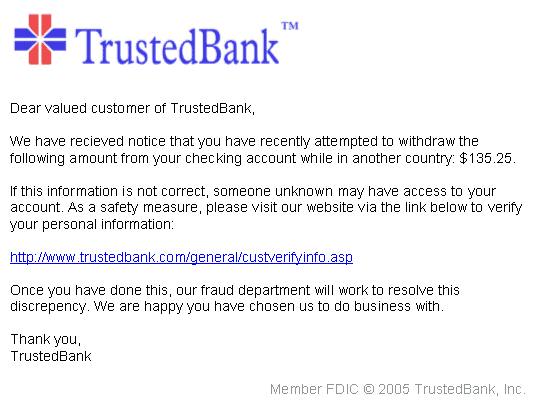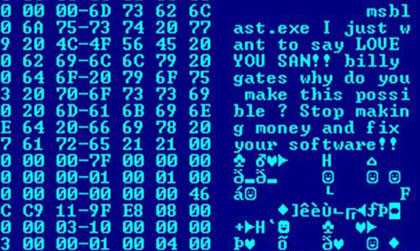|
Caja Project
Caja (pronounced ) was a Google project for sanitizing third party HTML, CSS and JavaScript. On January 31, 2021, Google archived the project due to known vulnerabilities and lack of maintenance to keep up with the latest web security research, recommending instead the Closure toolkit. Caja was designed by Google research scientist Mark S. Miller in 2008 as a JavaScript implementation for "virtual iframes" based on the principles of object-capabilities. It would take JavaScript (technically, ECMAScript 5 strict mode code), HTML, and CSS input and rewrite it into a safe subset of HTML and CSS, plus a single JavaScript function with no free variables. That means the only way such a function could modify an object, was if it was given a reference to the object by the host page. Instead of giving direct references to DOM objects, the host page typically gives references to wrappers that sanitize HTML, proxy URLs, and prevent redirecting the page; this allowed Caja to prevent cert ... [...More Info...] [...Related Items...] OR: [Wikipedia] [Google] [Baidu] |
Google
Google LLC () is an American multinational technology company focusing on search engine technology, online advertising, cloud computing, computer software, quantum computing, e-commerce, artificial intelligence, and consumer electronics. It has been referred to as "the most powerful company in the world" and one of the world's most valuable brands due to its market dominance, data collection, and technological advantages in the area of artificial intelligence. Its parent company Alphabet is considered one of the Big Five American information technology companies, alongside Amazon, Apple, Meta, and Microsoft. Google was founded on September 4, 1998, by Larry Page and Sergey Brin while they were PhD students at Stanford University in California. Together they own about 14% of its publicly listed shares and control 56% of its stockholder voting power through super-voting stock. The company went public via an initial public offering (IPO) in 2004. In 2015, Google was reor ... [...More Info...] [...Related Items...] OR: [Wikipedia] [Google] [Baidu] |
Phishing
Phishing is a type of social engineering where an attacker sends a fraudulent (e.g., spoofed, fake, or otherwise deceptive) message designed to trick a person into revealing sensitive information to the attacker or to deploy malicious software on the victim's infrastructure like ransomware. Phishing attacks have become increasingly sophisticated and often transparently mirror the site being targeted, allowing the attacker to observe everything while the victim is navigating the site, and transverse any additional security boundaries with the victim. As of 2020, phishing is by far the most common attack performed by cybercriminals, the FBI's Internet Crime Complaint Centre recording over twice as many incidents of phishing than any other type of computer crime. The first recorded use of the term "phishing" was in the cracking toolkit AOHell created by Koceilah Rekouche in 1995; however, it is possible that the term was used before this in a print edition of the hacker magazin ... [...More Info...] [...Related Items...] OR: [Wikipedia] [Google] [Baidu] |
Ben Laurie
Ben Laurie is an English software engineer. He is currently the Director of Security at The Bunker Secure Hosting. Laurie wrote Apache-SSL, the basis of most SSL-enabled versions of the Apache HTTP Server. He developed the MUD ''Gods'', which was innovative in including online creation in its endgame. Laurie also has written several articles, papers and books, and is interested in ideal knots and their applications. Laurie was a member of WikiLeaks' Advisory Board. According to Laurie, he had little involvement with WikiLeaks, and didn't know who ran the site other than Julian Assange Julian Paul Assange ( ; Hawkins; born 3 July 1971) is an Australian editor, publisher, and activist who founded WikiLeaks in 2006. WikiLeaks came to international attention in 2010 when it published a series of leaks provided by U.S. Army inte .... In 2009, he also said he wouldn't trust WikiLeaks to protect him if he were a whistleblower because "the things that Wikileaks relies on are not s ... [...More Info...] [...Related Items...] OR: [Wikipedia] [Google] [Baidu] |
E (programming Language)
E is an object-oriented programming language for secure distributed computing, created by Mark S. Miller, Dan Bornstein, Douglas Crockford, Chip Morningstar and others at Electric Communities in 1997. E is mainly descended from the concurrent language Joule and from Original-E, a set of extensions to Java for secure distributed programming. E combines message-based computation with Java-like syntax. A concurrency model based on event loops and promises ensures that deadlock can never occur. Philosophy The E language is designed with secure computing in mind; this is accomplished chiefly by strict adherence to the object-oriented computing model, which in its pure form has properties that support secure computing. The E language and its standard library employ a capability-based design philosophy throughout in order to help programmers build secure software and to enable software components to co-operate even if they don't fully trust each other. In E, object references s ... [...More Info...] [...Related Items...] OR: [Wikipedia] [Google] [Baidu] |
Java (programming Language)
Java is a high-level, class-based, object-oriented programming language that is designed to have as few implementation dependencies as possible. It is a general-purpose programming language intended to let programmers ''write once, run anywhere'' ( WORA), meaning that compiled Java code can run on all platforms that support Java without the need to recompile. Java applications are typically compiled to bytecode that can run on any Java virtual machine (JVM) regardless of the underlying computer architecture. The syntax of Java is similar to C and C++, but has fewer low-level facilities than either of them. The Java runtime provides dynamic capabilities (such as reflection and runtime code modification) that are typically not available in traditional compiled languages. , Java was one of the most popular programming languages in use according to GitHub, particularly for client–server web applications, with a reported 9 million developers. Java was originally developed ... [...More Info...] [...Related Items...] OR: [Wikipedia] [Google] [Baidu] |
Joe-E
Joe-E is a subset of the Java programming language intended to support programming according to object-capability discipline. The language is notable for being an early object-capability subset language. It has influenced later subset languages, such as ADsafe and Caja/Cajita, subsets of Javascript. It is also notable for allowing methods to be verified as functionally pure, based on their method signatures. Matthew Finifter, Adrian Mettler, Naveen Sastry, David Wagner; October 2008, Conference on Computer and Communications Security. The restrictions imposed by the Joe-E verifier include: * Classes may not have mutable static fields, because these create global state. * Catching out-of-memory exceptions is prohibited, because doing so allows non-deterministic execution. For t ... [...More Info...] [...Related Items...] OR: [Wikipedia] [Google] [Baidu] |
OpenSocial
OpenSocial is a public specification that defines a component hosting environment (container) and a set of common application programming interfaces (APIs) for web applications. Initially, it was designed for social network applications and developed by Google along with MySpace and several other social networks. Recently, it has been adopted as a general use runtime environment for allowing untrusted and partially trusted components from third parties to run in an existing web application. The OpenSocial Foundation moved to integrate or support numerous other Open Web technologies. This includes OAuth and OAuth 2.0, Activity Streams, and Portable Contacts, among others. It was released on November 1, 2007. Applications implementing the OpenSocial APIs are interoperable with any social network system that supports them. At launch, OpenSocial took a one-size-fits-all approach to development. As it became more robust and the user-base expanded, OpenSocial modularized the plat ... [...More Info...] [...Related Items...] OR: [Wikipedia] [Google] [Baidu] |
Yahoo!
Yahoo! (, styled yahoo''!'' in its logo) is an American web services provider. It is headquartered in Sunnyvale, California and operated by the namesake company Yahoo Inc., which is 90% owned by investment funds managed by Apollo Global Management and 10% by Verizon Communications. It provides a web portal, search engine Yahoo Search, and related services, including My Yahoo!, Yahoo Mail, Yahoo News, Yahoo Finance, Yahoo Sports and its advertising platform, Yahoo! Native. Yahoo was established by Jerry Yang and David Filo in January 1994 and was one of the pioneers of the early Internet era in the 1990s. However, usage declined in the late 2000s as some services discontinued and it lost market share to Facebook and Google. History Founding In January 1994, Yang and Filo were electrical engineering graduate students at Stanford University, when they created a website named "Jerry and David's guide to the World Wide Web". The site was a human-edited web directory, or ... [...More Info...] [...Related Items...] OR: [Wikipedia] [Google] [Baidu] |
Google Apps Script
Google Apps Script is a scripting platform developed by Google for light-weight application development in the Google Workspace platform. Google Apps Script was initially developed by Mike Harm as a side project while working as a developer on Google Sheets. Google Apps Script was first publicly announced in May 2009 when a beta testing program was announced by Jonathan Rochelle, then Product Manager for Google Docs. In August 2009 Google Apps Script was subsequently made available to all Google Apps Premier and Education Edition customers. It is based on JavaScript 1.6, but also includes some portions of 1.7 and 1.8 and a subset of the ECMAScript 5 API. Apps Script projects run server-side on Google's infrastructure. According to Google, Apps Script "provides easy ways to automate tasks across Google products and third party services." Apps Script is also the tool that powers the add-ons for Google Docs, Sheets and Slides. Benefits # Based on JavaScript 1.6 and a selection of J ... [...More Info...] [...Related Items...] OR: [Wikipedia] [Google] [Baidu] |
Malware
Malware (a portmanteau for ''malicious software'') is any software intentionally designed to cause disruption to a computer, server, client, or computer network, leak private information, gain unauthorized access to information or systems, deprive access to information, or which unknowingly interferes with the user's computer security and privacy. By contrast, software that causes harm due to some deficiency is typically described as a software bug. Malware poses serious problems to individuals and businesses on the Internet. According to Symantec's 2018 Internet Security Threat Report (ISTR), malware variants number has increased to 669,947,865 in 2017, which is twice as many malware variants as in 2016. Cybercrime, which includes malware attacks as well as other crimes committed by computer, was predicted to cost the world economy $6 trillion USD in 2021, and is increasing at a rate of 15% per year. Many types of malware exist, including computer viruses, worms, Trojan horses, ... [...More Info...] [...Related Items...] OR: [Wikipedia] [Google] [Baidu] |
Cross-site Scripting
Cross-site scripting (XSS) is a type of security vulnerability that can be found in some web applications. XSS attacks enable attackers to inject client-side scripts into web pages viewed by other users. A cross-site scripting vulnerability may be used by attackers to bypass access controls such as the same-origin policy. Cross-site scripting carried out on websites accounted for roughly 84% of all security vulnerabilities documented by Symantec up until 2007.During the second half of 2007, 11,253 site-specific cross-site vulnerabilities were documented by XSSed, compared to 2,134 "traditional" vulnerabilities documented by Symantec, in XSS effects vary in range from petty nuisance to significant security risk, depending on the sensitivity of the data handled by the vulnerable site and the nature of any security mitigation implemented by the site's owner network. Background Security on the web depends on a variety of mechanisms, including an underlying concept of trust know ... [...More Info...] [...Related Items...] OR: [Wikipedia] [Google] [Baidu] |




